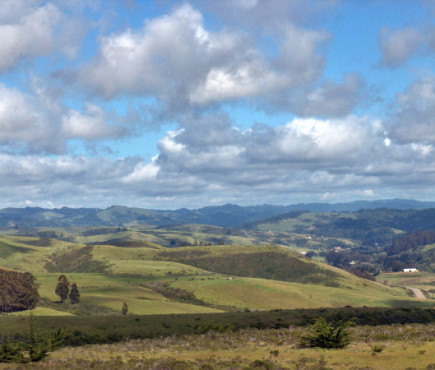As the number of land trusts has continued to grow, so has the need to further build the capacity and skills of those who operate these organizations. To support this capacity building, the David and Lucile Packard Foundation made a grant to the Land Trust Alliance in 2007 to lay the groundwork for an accreditation program and to conduct accreditation reviews nationwide. The accreditation program would provide an opportunity for land trusts to demonstrate — to funders, their local communities, and the land conservation field — that they met high professional standards in their conservation work.
Land trusts — nonprofit organizations whose missions include the acquisition and stewardship of land for permanent protection — are often found at the heart of conservation efforts. More than 1,700 land trusts across the United States provide a wide range of economic and environmental benefits to their local communities through the lands they protect — from expanded open space to cleaner air and water to increased property values. While varying in size, structure, and staff capacity, these groups shoulder some big responsibilities.
-

-

The grant also supported creation of a skills building and training curriculum that would prepare land trusts for accreditation. The Land Trust Alliance developed 15 modules and delivered these courses nationwide through in-person and online trainings. To date, 285 land trusts across the United States have achieved accreditation, with 96 percent of applicants reporting that the accreditation process has strengthened their organization.
-
The accreditation process proved helpful to many land trusts, but it did not address a threat to their conservation investments: legal challenges. From enforcing the terms of conservation easements on protected land to addressing issues of liability if someone is injured while on the property, land trusts confront a range of legal needs that can drain resources from their day-to-day work.
-
To address this need, the Packard Foundation joined the Richard King Mellon Foundation, the Doris Duke Charitable Foundation, and many other funders in 2011 to help the Land Trust Alliance launch Terrafirma Risk Retention Group, the first-ever insurance company created by an environmental organization. By the end of 2014, Terrafirma had enrolled more than 450 land trusts and insured more than 22,000 properties. The funding also helped to create the Conservation Defense Initiative, a program that provides land trusts with technical assistance, legal education, the latest news, and other resources.
-
Helping land trusts develop the tools and resources they need to strengthen and protect their organizations allows them to remain focused on the important conservation work they do every day. Ultimately, that ensures that the land they acquire and steward truly remains protected forever.
